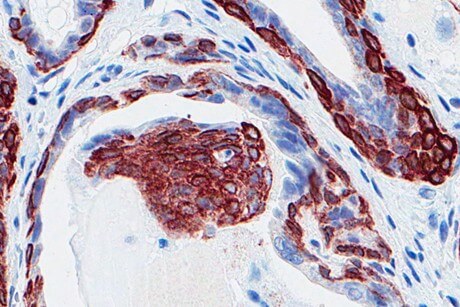For men with low-risk prostate cancer, low levels of testosterone may indicate a worsening of their disease. That’s the conclusion of a new study published in BJU International. The findings may help physicians identify patients with low-risk prostate cancer who should receive aggressive anticancer treatment.
Men with prostate cancer that is not life threatening and is only slowly progressing, can often forego treatment and instead undergo active surveillance. This involves close monitoring to ensure that their disease does not become serious and jeopardize their health. Unfortunately, doctors currently have no reliable way of predicting which men will develop evidence of worsening or more aggressive disease during active surveillance.
Ignacio San Francisco, MD, of the Pontificia Universidad Católica de Chile, and his colleagues looked to see if testosterone levels might provide any indication. After following 154 men with low-risk prostate cancer for 38 months, the investigators found that low levels of free testosterone were significantly linked with an increased risk of developing more aggressive disease. They found no significant association with total testosterone concentrations, although there was a general trend towards increased risk with lower levels. Free testosterone comprises one to two percent of total testosterone and is considered a useful surrogate for the biologically active portion of circulating testosterone.
“These results suggest low levels of testosterone are associated with more aggressive prostate cancer. This contradicts long-held beliefs that high testosterone is risky for prostate cancer, and low testosterone is protective,” said Dr. San Francisco.
The results of this study provide valuable information to clinicians and their patients concerning risk factors for prostate cancer progression in men undergoing active surveillance. “In borderline cases, the presence of low values of free testosterone may help determine whether it is more prudent to initiate treatment rather than continue observation,” said Dr. San Francisco.



this is a very interesting and educating aswell,i didtn even know about the effect of low testestorone in men,what i would love to know now is what is the effect of high testestorone as it was believed that it was the one cousing the prostate cancer,and what were the symptoms related to the high testestorone?